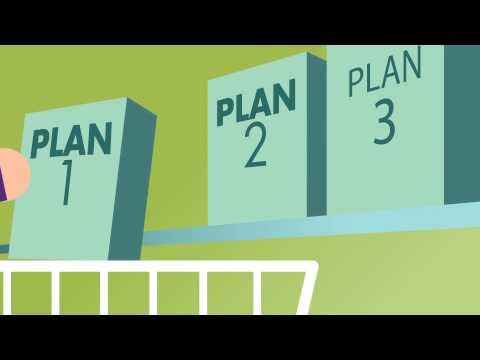Don't Understand Health Insurance Exchanges? You're Not Alone

Starting October 1, millions of uninsured Americans in every state will be able to shop for and purchase health insurance through health insurance marketplaces, although many aren't even aware of it.
With the Affordable Care Act (ACA) here to stay, states are preparing to unveil the Health Insurance Marketplace (also known as the Exchanges), in which individuals, families and small-business owners will be able to learn about and compare health insurance plans in one place. Aside from implementing the Exchanges, states also have the daunting task of educating the public about them.
Several survey results indicate everyone will need a lot of help. A recent poll conducted by Princeton Survey Research Association International shows that 90 percent of Americans are not aware that the Health Insurance Marketplace will open this fall.
A Kaiser Family Foundation survey found that over half of Americans say they do not have enough information about how the health reform law will impact them personally. Among those who stand to benefit most from the law, awareness is even lower: 67 percent of uninsured and 68 percent of low-income say they do not understand how the ACA will impact their lives.
To help with the exchange, states are investing, using state and federal grants, to spread the word about the Health Insurance Marketplace. To answer coverage questions, help people with eligibility determination, and select plans, states will establish toll-free call centers, online chats, and fund local assistance programs.
In Maryland, Lt. Gov. Anthony Brown announced a $24 million Connector Program, which will provide consumer assistance and enrollment resources in the state.
Meanwhile in California, the organization Covered California has a budget of $290 million to reach the state's 5.3 million uninsured residents. About half of the budget will go toward media advertising, and some will be used to create call centers that can handle a dozen languages.
Even physicians, nurses, and other health care providers need to be informed about the Health Insurance Exchanges, since many patients will expect help from professionals to acquire insurance coverage.
In an online article for the Journal of the American Medical Association, Assistant Secretary of Health Dr. Howard Koh, and Acting Administrator of the Centers for Medicare and Medicaid Services Marilyn Tavenner, RN, urged health professionals to connect people to coverage and gave a brief overview of the upcoming changes.
All health insurance plans part of the Health Insurance Marketplace must cover essential health benefits, such as prescription drugs, emergency services, and outpatient services. The plans must also include "essential" benefits that are often not covered in lower quality insurance plans, including mental health and substance abuse disorder services, chronic disease management, and coverage for oral and vision care.
Customers shopping for insurance will be able to compare plans side-by-side. Plans will be ranked based on the level of cost-sharing protection.
Furthermore, other changes in the Affordable Care Act will allow more people to access and afford health insurance. More Americans will qualify for free or low-cost health insurance, and households up to 400 percent of the poverty level (up to an annual household income of $92,200 for a family of four) will be eligible for tax credits.
No one will be turned away from a health insurance plan because of a preexisting condition. Also, insurance companies will be unable to charge customers more because of their health status or sex.
For more information about the health care exchanges including financial assistance, visit Healthcare.gov.



























